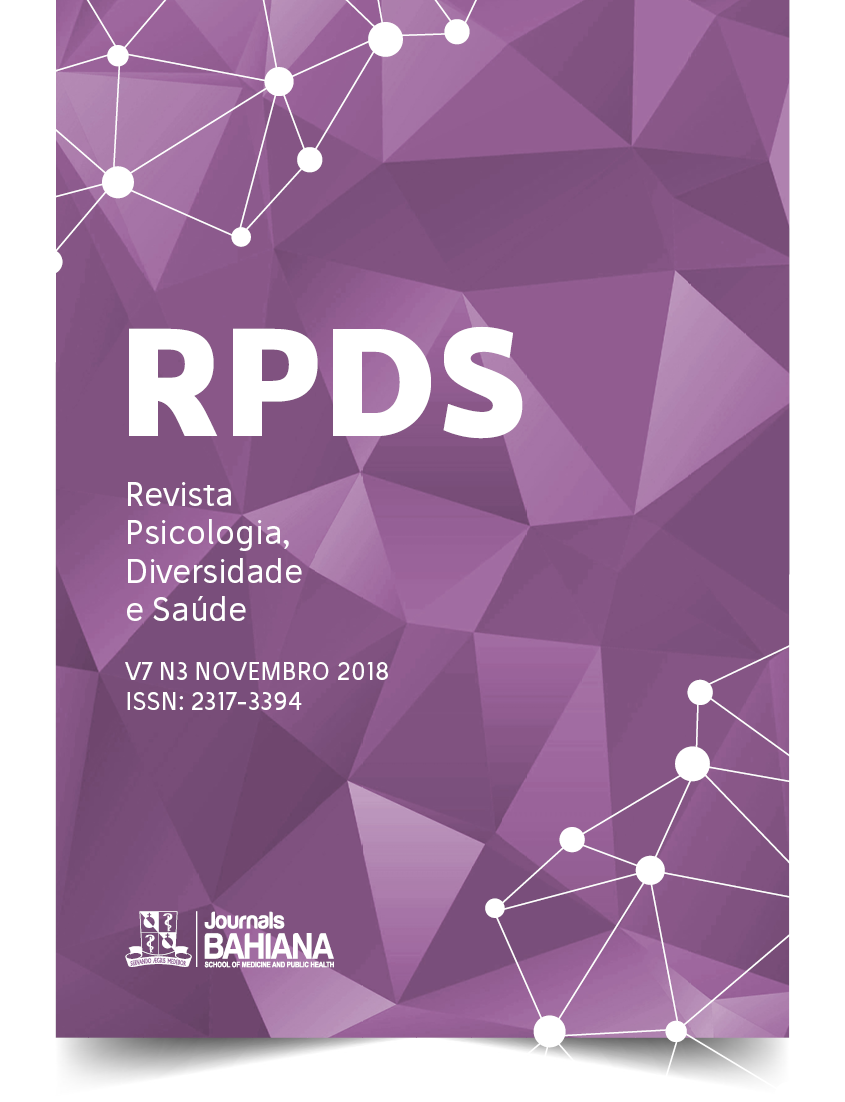Estresse ocupacional em mulheres trabalhadoras: estudo de correlatos individuais, familiares e ocupacionais
DOI:
https://doi.org/10.17267/2317-3394rpds.v7i3.2172Palabras clave:
Estresse Ocupacional. Mulheres. Família.Resumen
INTRODUÇÃO: O estresse ocupacional pode ser compreendido como um conjunto de inquietações psicológicas ou sofrimentos psíquicos vinculados às vivências de trabalho. OBJETIVO: identificar variáveis individuais, familiares e ocupacionais que estabeleçam relação com o estresse ocupacional em mulheres. MÉTODO: A amostra foi composta por 75 mulheres de diferentes ocupações e organizações. Foram aplicadas a versão resumida da Job Stress Scale, a Escala de Políticas e Práticas de Recursos Humanos e duas escalas sobre as interfaces trabalho-família. Para a análise dos dados, foram utilizadas estatísticas descritivas para a caracterização geral e, em seguida, análises de correlação de Pearson para a verificação das relações estabelecidas entre o estresse ocupacional e as demais variáveis do estudo. RESULTADOS: a média de estresse ocupacional das mulheres que participaram do estudo pode ser classificada como moderada (M=2,12; DP=0,36). Nas correlações, observou-se que, entre as variáveis pessoais investigadas, a escolaridade foi a única que apresentou resultado significativo (r =-0,260, p<0,05). Em relação às variáveis familiares, nota-se que ambas as dimensões do conflito trabalho-família apresentaram correlações estatisticamente significativas entre o estresse ocupacional (r=0,492 e 0,278, para interferência trabalho-família e interferência família-trabalho, respectivamente, p<0,01). Por fim, dentre as variáveis organizacionais contempladas no estudo, as práticas de RH que visam à promoção de envolvimento do trabalho e o oferecimento de boas condições de trabalho apresentaram correlações negativas e significativas com o estresse ocupacional (r=0,618 e 0,321, respectivamente, p<0,01). CONCLUSÃO: variáveis que envolvem a percepção apresentaram relações mais importantes com o estresse ocupacional do que variáveis mais concretas.



